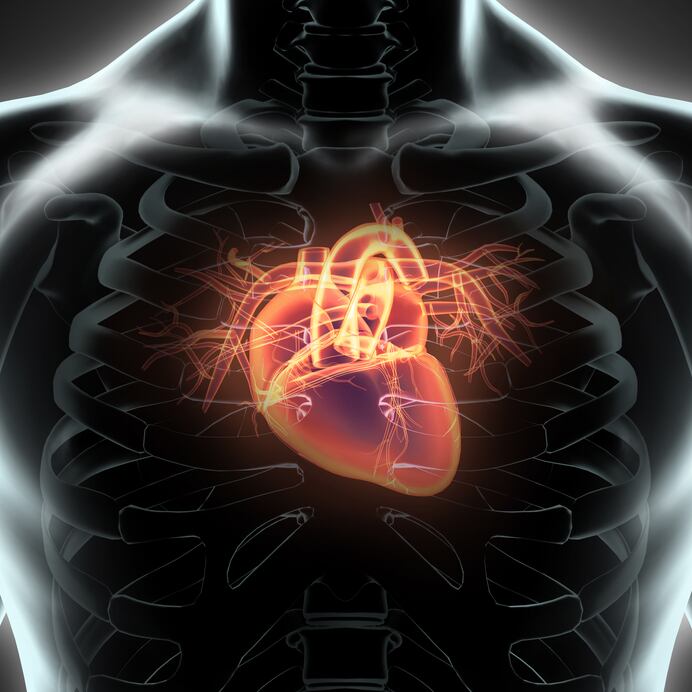The researchers, from Friedeich Schiller University Jena, looked at representative data from the Global Burden of Disease study, which was conducted between 1990 and 2016. They analysed cardiovascular diseases in the 51 countries designated the European region by the World Health Organization.
Based on food consumption and other risk factors in the respective countries, the researchers calculated the percentage of deaths attributable to an unbalanced diet, for example, the under-consumption of whole grain products, nuts, seeds and vegetables, as well as the over-consumption of salt.
‘Clear differences’ should be reflected in health policy
A comparison of the data between different countries highlighted “clear differences”, the report concluded.
In 2016, 160,000 deaths (46% of all cardiovascular deaths) were associated with an unbalanced diet in Germany; compared to 97,000 (41%) in Italy, 75,000 (41%) in Great Britain and 67,000 (40%) in France. In Israel and Spain, however, only one in three premature cardiovascular deaths was diet-related.
This reflects different national eating habits, Dr Toni Meier from MLU, suggested.
“In Sweden and Norway the under consumption of nuts and seeds is most strongly associated with cardiovascular diseases, while in many Central and Eastern European and Central Asian countries the low intake of whole grain products poses the greatest risk. Or to put it another way: Increased consumption of low-fibre white flour products has led to an increase in cardiovascular disease in recent years. In Albania, Azerbaijan and Uzbekistan, the number of cases has more than doubled in the period under review,” Dr Meier, who heads the study, reflected.
“Our findings are crucially relevant for health policy and should be incorporated in the development of future prevention strategies,” added Professor Stefan Lorkowski of the Friedrich Schiller University Jena, co-author of the study and spokesperson for the nutriCARD competence cluster.
“We must make better use of the potential of a balanced and healthy diet, otherwise cardiometabolic diseases will be the cause of even more preventable deaths in the future.”
Age and gender play a role too
The team also found differences in terms of age and gender: men tended to be affected at a younger age, while women were only affected from the age of 50 onwards.
In 2016, around 601,000 people under the age of 70 died from diet-related cardiovascular disease, 420,000 of them men and 181,000 women.
In the EU member states, the researchers identified 178,000 premature diet-related deaths - 132,000 of them men and 46,000 of them women - which corresponds to almost 20% of cardiovascular deaths.
With the help of a calculation model, the researchers were also able to determine the effects of other risk factors such as obesity, high blood pressure, lack of exercise and smoking, thereby identifying the specific proportion of cardiovascular disease caused by an improper diet.
However, the authors acknowleged there were some limitations to the study. “It should also be emphasised that the well-known risk factor of alcohol was not taken into account by our study. In countries with a high consumption of alcohol the degree of diet-related cardiovascular disease could be even higher,” noted nutritionist Professor Gabriele Stangl from the MLU.
Source
‘Cardiovascular mortality attributable to dietary risk factors in 51 countries in the WHO European Region from 1990 to 2016: a systematic analysis of the Global Burden of Disease Study’
European Journal of Epidemiology (2019)
DOI: doi: 10.1007/s10654-018-0473-x
Meier T. et al.




